Abstract
To investigate the relationship between four sources of environmental pollution (shipyard, iron foundry, incinerator, and city center) and lung cancer risk, we conducted a case-control study of decreased men in Trieste, Italy. We identified 755 cases of lung cancer and 755 controls through the local autopsy registry. Information on smoking habits, occupational history, and place of residence were obtained from the subject's next of kin. The case-control design was used to properly account for subject-specific confounders, which represent a major problem in geographical analysis. Spatial models were used to evaluate the effect of sources of pollution on lung cancer after adjustment for age, smoking habits, likelihood of exposure to occupational carcinogens, and levels of air particulate. The models are based on distance from the sources and enable estimation of the risk gradient and directional effects separately for each source. The risk of lung cancer was highly related to the city center (p = 0.0243), with an excess relative risk at zero distance of 2.2 and a smooth decrease moving away from the source (-0.015), and related to the incinerator (p = 0.0098), with an excess relative risk of 6.7 in the source and a very steep decrease (-0.176). These results are consistent with findings of previous analyses and provide further evidence that air pollution is a moderate risk factor of lung cancer.
Full text
PDF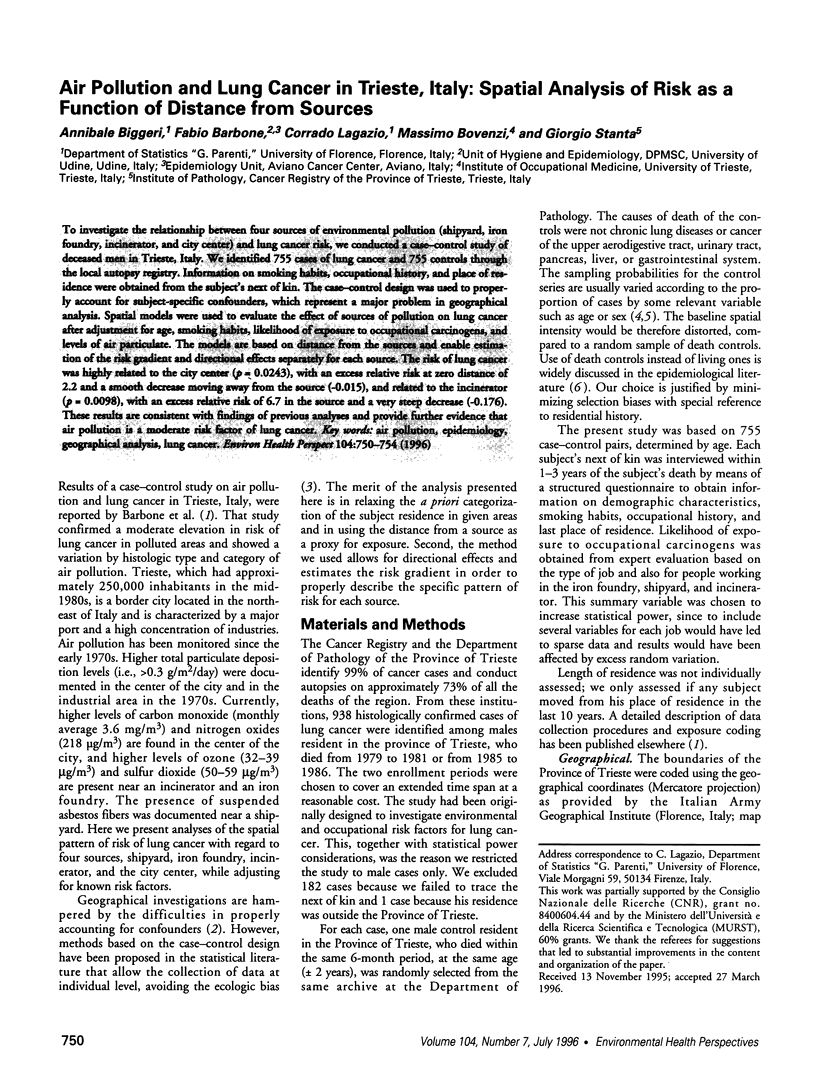
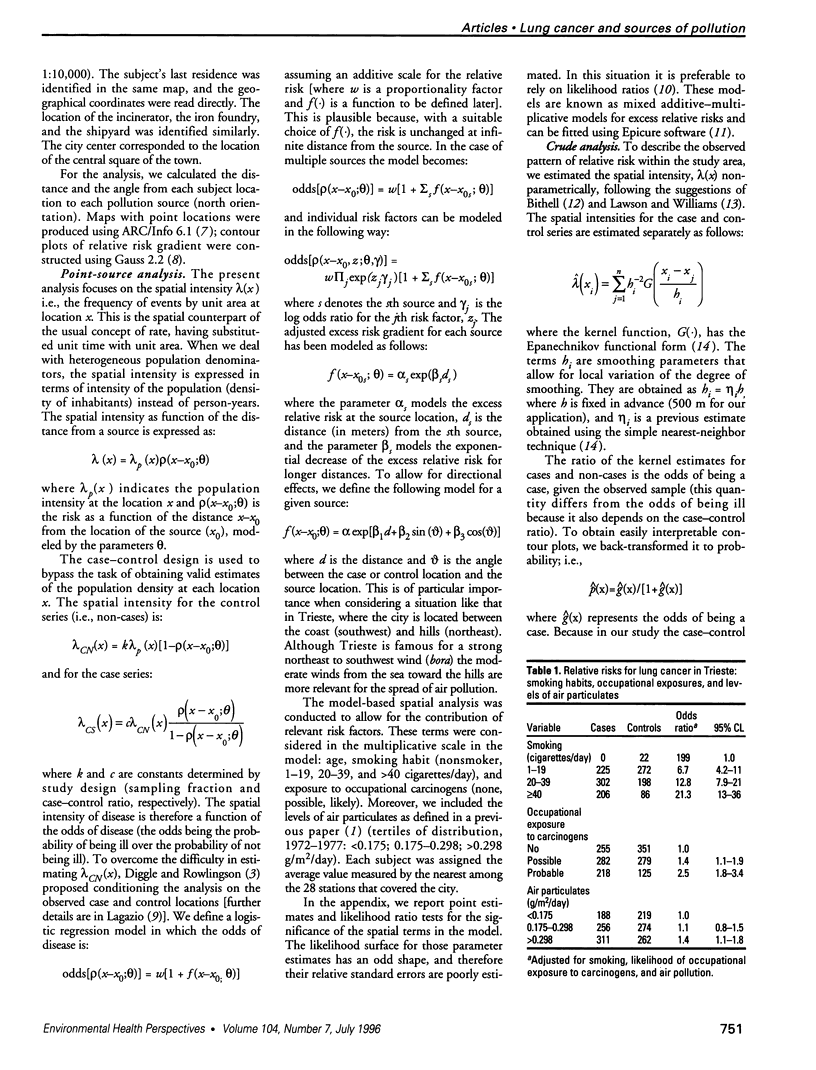
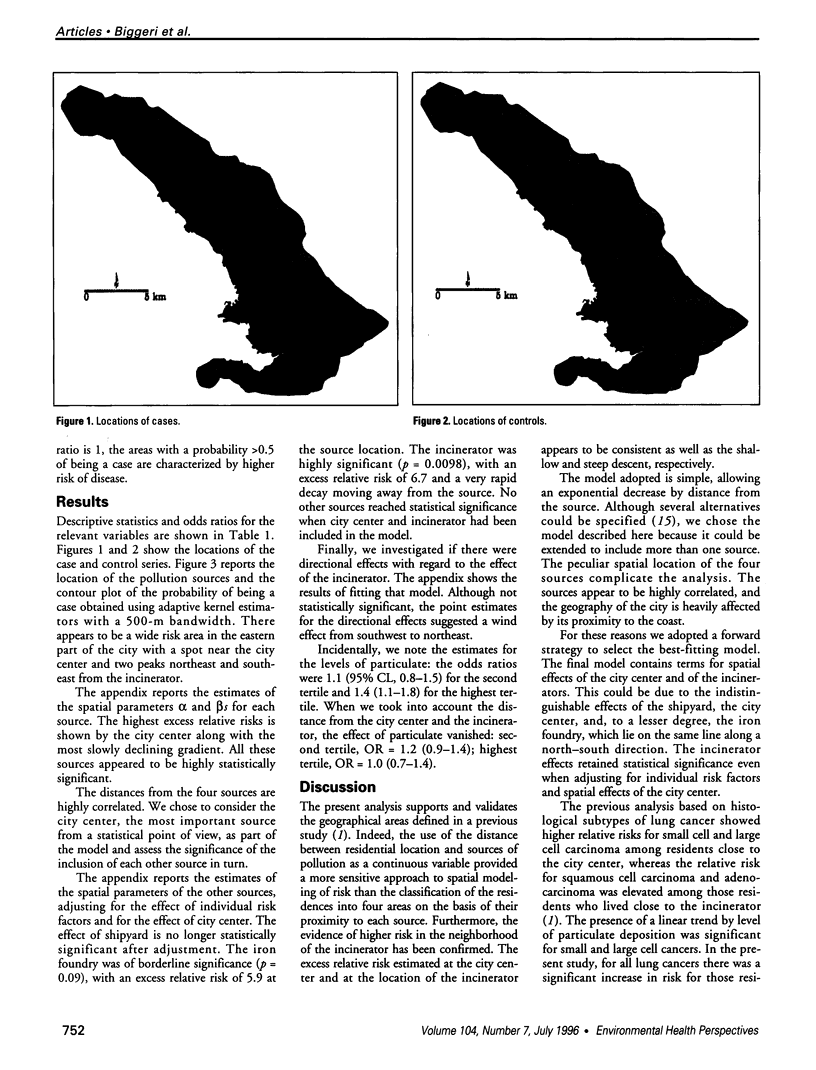
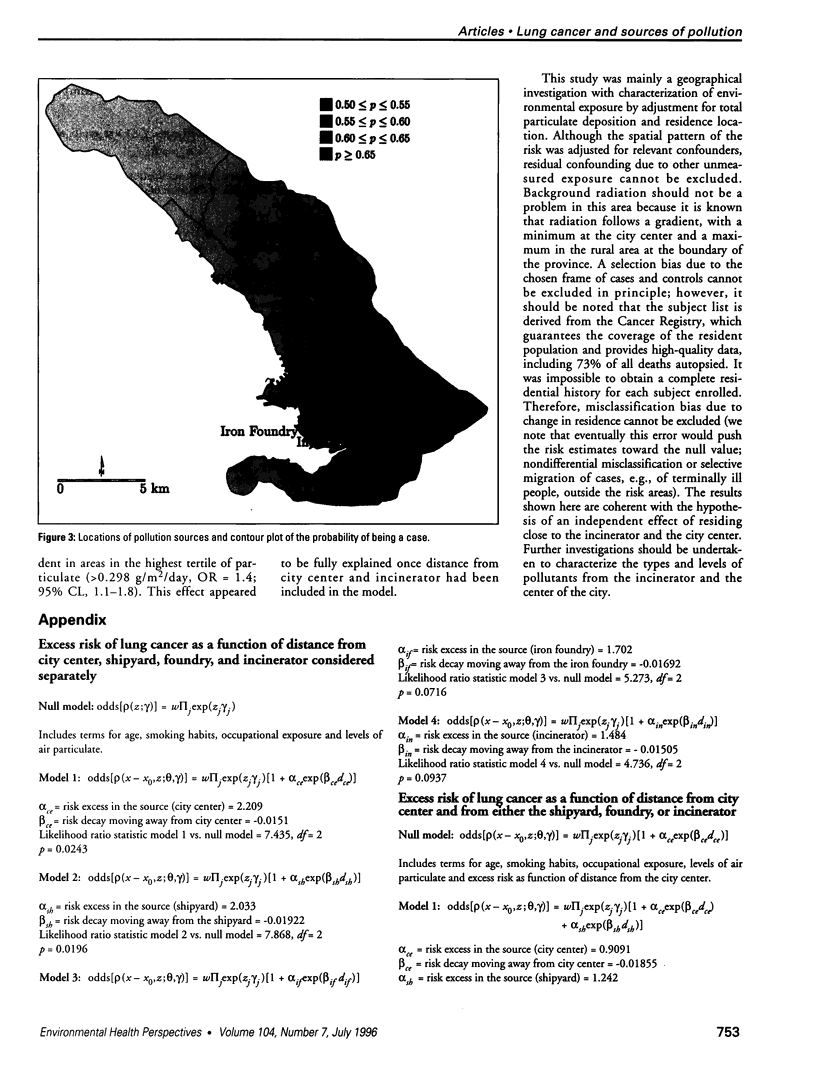
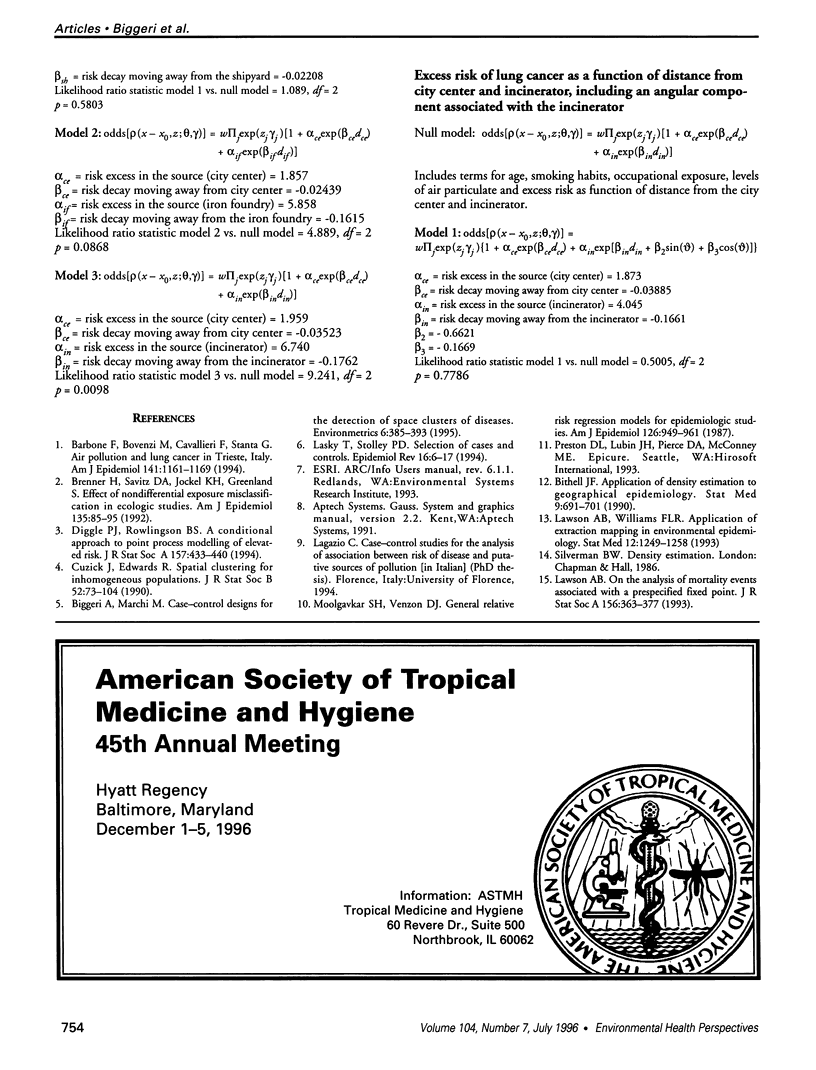
Images in this article
Selected References
These references are in PubMed. This may not be the complete list of references from this article.
- Barbone F., Bovenzi M., Cavallieri F., Stanta G. Air pollution and lung cancer in Trieste, Italy. Am J Epidemiol. 1995 Jun 15;141(12):1161–1169. doi: 10.1093/oxfordjournals.aje.a117389. [DOI] [PubMed] [Google Scholar]
- Bithell J. F. An application of density estimation to geographical epidemiology. Stat Med. 1990 Jun;9(6):691–701. doi: 10.1002/sim.4780090616. [DOI] [PubMed] [Google Scholar]
- Brenner H., Savitz D. A., Jöckel K. H., Greenland S. Effects of nondifferential exposure misclassification in ecologic studies. Am J Epidemiol. 1992 Jan 1;135(1):85–95. doi: 10.1093/oxfordjournals.aje.a116205. [DOI] [PubMed] [Google Scholar]
- Lasky T., Stolley P. D. Selection of cases and controls. Epidemiol Rev. 1994;16(1):6–17. doi: 10.1093/oxfordjournals.epirev.a036145. [DOI] [PubMed] [Google Scholar]
- Lawson A. B. On the analysis of mortality events associated with a prespecified fixed point. J R Stat Soc Ser A Stat Soc. 1993;156(3):363–377. [PubMed] [Google Scholar]
- Lawson A. B., Williams F. L. Applications of extraction mapping in environmental epidemiology. Stat Med. 1993 Jul 15;12(13):1249–1258. doi: 10.1002/sim.4780121306. [DOI] [PubMed] [Google Scholar]
- Moolgavkar S. H., Venzon D. J. General relative risk regression models for epidemiologic studies. Am J Epidemiol. 1987 Nov;126(5):949–961. doi: 10.1093/oxfordjournals.aje.a114733. [DOI] [PubMed] [Google Scholar]





